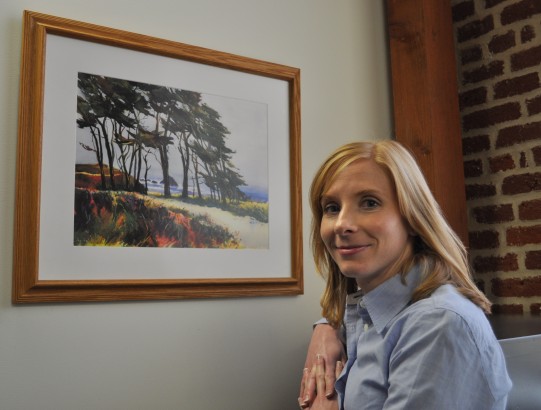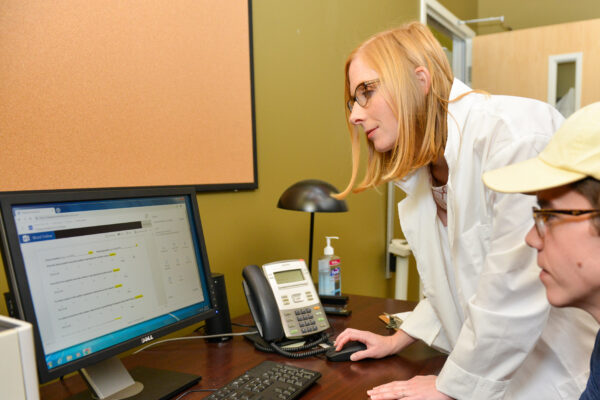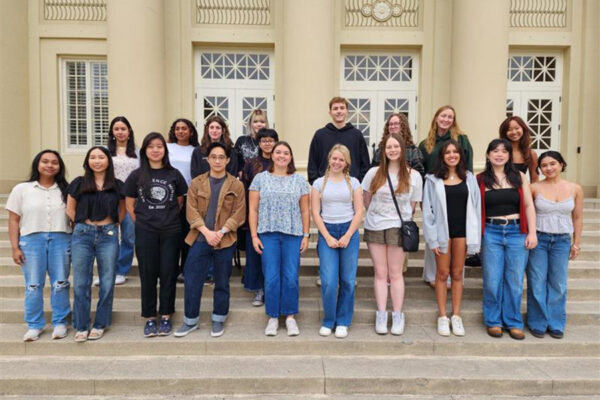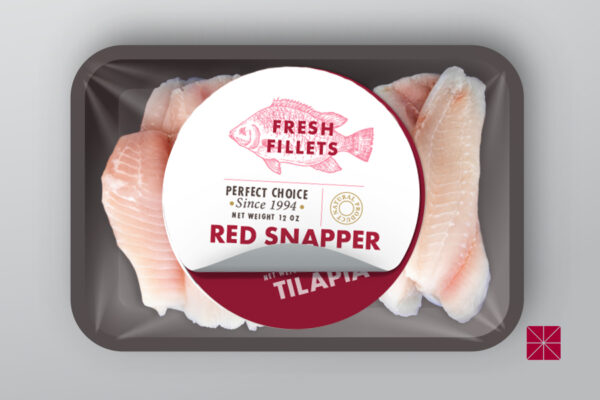The stories behind those trinkets and mementos in faculty offices won’t show up on their CVs. But the things faculty choose to collect help us see another side of their academic lives. This month Office Ours features Julia Boehm, Ph.D., assistant professor, in Crean School of Health and Life Sciences. Please send your Office Ours suggestions to pr@chapman.edu.

Making room in your life for small pleasures, like the painting displayed in Assistant Professor Julia Boehm’s office, can be heart healthy, she says.
No one is going to suggest that the gravy-laden Thanksgiving meal most folks will gobble down this month is heart healthy.
But those who also dish up a few moments of genuine gratitude with all the trimmings just might boost their optimism about life. And that could lead to better cardiovascular health.
That’s because optimism is good for your heart, says Julia Boehm, Ph.D., assistant professor in the
Crean School of Health and Life Sciences. A study she led as a research fellow at the Harvard School of Public Health strongly suggests that happiness, life satisfaction and other positive psychological assets impart protection against cardiovascular disease.
“People with the most optimism have higher levels of good lipids. If you have higher levels of the HDLs, or high-density lipoprotein, that’s a protective factor. That’s a good thing,” Boehm says.
The good – or optimistic – news is that even small daily actions can fortify the old optimism muscle, if you will, says Boehm. Which brings us to the water color painting tucked in a corner of her office at Crean Hall. It’s a gentle coastal scene dominated by wind-blown trees. Splashes of orange and yellow blooms line a path leading to a bluff overlooking ocean and sky. But for Boehm it’s more than just a nice office touch. Her mother purchased the painting at an art fair many years ago on a family vacation along the Northern California coast. When her mother passed away a few years ago, the painting became a treasured possession of Boehm’s. Does it make her happy to have it near?
“Definitely. When I come in every day it’s in my line of vision and it’s just a nice way to start off the day,” Boehm says. “There’s actually some evidence that says it’s not the big things in life that contribute to your overall happiness, but the smaller things — like the kiss from your son as you’re leaving for work or the traffic-free commute.”
Putting a scientific eye to such experiences is the focus of Boehm’s current work. Every year about 715,000 Americans have a heart attack, according to the Centers for Disease Control and Prevention. So understanding every angle of the disease, from diet to stress, is critical to public health, Boehm says. Her next arena of that work is the genesis of that
heart-healthy optimism
. Optimistic people tend to lead healthier lifestyles, she says. But does the healthy life foster optimism, or does an optimistic disposition seed the healthier behaviors?
“Right now I’m attempting to disentangle that directional relationship,” she says. “It’s a which-one comes-first question, the chicken and the egg question. If we can establish that, we’re going to be better equipped to plan interventions and hopefully have better health impacts.”
She suspects there’s more than just behavior afoot.
“I think that optimism and satisfaction are somehow getting under our skins. There’s something in our bodies. Those systems are altering our biology somehow to create this different disease trajectory,” she says.
Meanwhile, physicians and mental health professionals can’t just order people to flick on the happy switch. Diet, exercise and genetics still matter. But Boehm says focused, long-term practices of yoga and meditation and the development of nurturing social lives and family relationships are some elements that can feed well-being. They aren’t necessarily easily accomplished, though.
“I like to compare it to losing weight. You can’t just say, ‘I’m going to lose weight today.’ A lot of work goes into it. It is possible to increase your optimism or happiness, but it’s going to take as much effort as it would to lose 15 pounds.”
Happily, there’s that certain national holiday coming up that reminds people to be grateful and connect with friends and family. Boehm suggests making it a daily practice.
“If you can also take a second and focus on the good things in life, that can help alter your perceptions,” she says.
And it can be done without a sink full of dirty Thanksgiving dishes. Now that is a happy thought.
Learn more about Boehm’s research on The Academic Minute, a program of WAMC Northeast Public Radio.





Cool article, Dawn! 🙂 Interesting work that Dr. Boehm is doing!
Agreed! Thanks for the note, Smiley.